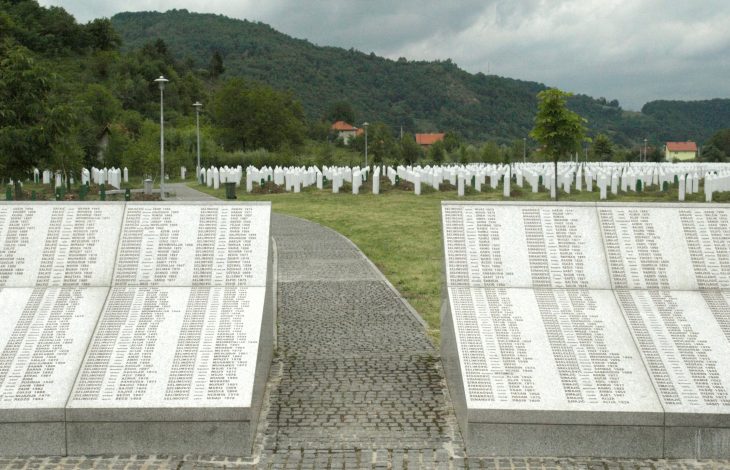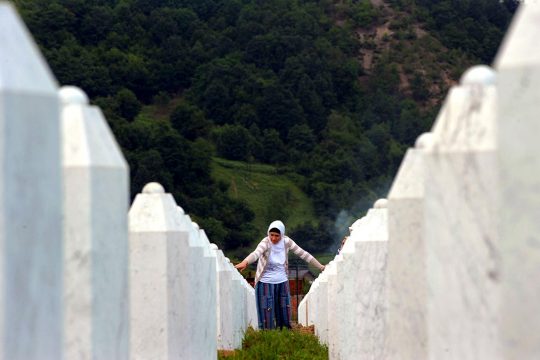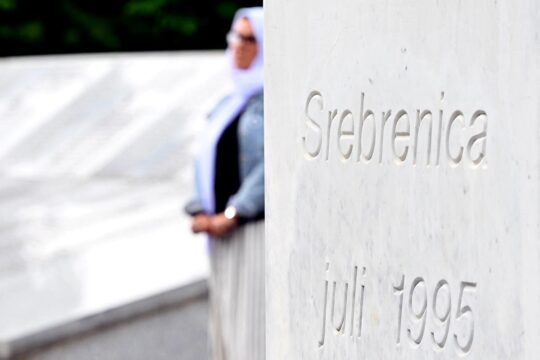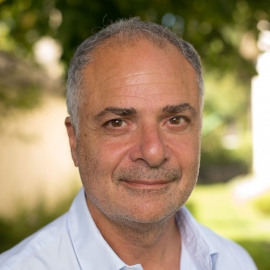The introduction of plea bargaining at the International Criminal Tribunal for the former Yugoslavia (ICTY) may have saved time and money, but has it served the interests of “truth”? After Rwanda last week, we continue our series on forgiveness with a look at the experience of the ICTY. Next week, we will turn our attention to South Africa.
In the mid- and late 1990s, a hot debate divided human rights activists led by two charismatic men, South African Truth and Reconciliation Commission (TRC) chairman Archbishop Desmond Tutu and the President of the International Criminal Tribunal for the former Yugoslavia (ICTY), Antonio Cassese. This debate pitted the supporters of truth commissions against those of international criminal justice. The former, including Archbishop Desmond Tutu, argued the necessity for forgiveness as a key condition to avoid a bloodbath and then to build a new national identity and the conditions for people to live together. On the other hand, the advocates of criminal justice argued the necessity for punishment as a key condition to break the cycle of vengeance and violence. This approach is often summed up in the phrase “no peace without justice”, with justice being defined in terms of purely criminal justice.
Eight years after the creation of the ICTY, the judges decided in December 2001 to introduce the plea agreement into the Rules of Procedure and Evidence in Article 62ter:
“A) The Prosecutor and the defence may agree that, upon the accused entering a plea of guilty to the indictment or to one or more counts of the indictment, the Prosecutor shall do one or more of the following before the Trial Chamber:
i) apply to amend the indictment accordingly;
ii) submit that a specific sentence or sentencing range is appropriate;
iii) not oppose a request by the accused for a particular sentence or sentencing range.
B) The Trial Chamber shall not be bound by any agreement specified in paragraph (A).
This provision often used in American law allows the Accused to admit their crimes and repent. In exchange for a confession of the crimes and a request for forgiveness, there is no longer any need for a trial. This is in the interest of an accused person. His or her lawyer conducts a preliminary negotiation with the prosecution on the charges and the sentence the prosecution will ask for. The judges are not officially bound to accept the result of this transaction between the two parties, but in practice they follow it. This procedure helps free up American courts.
The ICTY, which has been much criticized for the slowness of its trials (4 years on average), their cost (10 million dollars per trial) and the complexity of its procedures which hamper the educational dimension of justice, has found a pragmatic and efficient way to respond to such criticisms. It offers at the same time a considerable economy of time and resources, simultaneously serving as a formidable lesson. Instead of a trial that lasts for years, there is need only for a session to hear a few witnesses and set the sentence, since the Accused has admitted the facts behind the charges against him or her. As for the confession, it can be put online in a video of about fifteen minutes. This efficiency with regard to the media impact is in line, in the thinking of the ICTY, with its deepest mission, that is, to encourage the process of reconciliation by the unveiling of truth that the guilty plea implies.
Plea bargaining nevertheless raises some big questions. What should we think of this discreet, if not secret negotiation between the prosecution and defence, after which the most serious charges may be withdrawn? What should we make of the fact that Bijlena Plavsic, former president of Republika Srpska (Serb entity in Bosnia), and all the accused linked to the Srebrenica massacres who pleaded guilty got genocide charges against them dropped? This is a strong encouragement to plead guilty! Hence the ironic headline of newspaper Oslobodjene: “Those who plead guilty are pardoned for genocide”. Other accused who refused to plead guilty were convicted for crimes of genocide or complicity in crimes of genocide.
Apart from economies in the trial, does historical truth gain from the plea bargain? Or are confessions limited to a strict minimum? This is the conclusion the judges apparently came to in the Nikolic decision:
“A public trial during which the two parties present witnesses and documentary evidence allows us to paint a more complete picture of events than a plea bargain which can be limited to establishing the basic facts of the allegations in the indictment or be accompanied by an exposé of the facts and a document in which the Accused admits responsibility.”
The judges rightly point to the fact that the truth that is admitted may be only partial. For example, Bijlena Plavsic never withdrew her virulent declarations during the war, nor cooperated in other ICTY cases, nor shed light on the internal workings of the Presidency of Republika Srpska. After serving her sentence (she was given 11 years in jail), she withdrew her confessions and distanced herself from them.
In the same judgment of Momir Nikolic, the judges expressed concern about a use of the plea bargain in which the most serious charges could be withdrawn, as in the case mentioned above, to the detriment of fair justice:
“Once a charge of genocide has been confirmed, it should not be possible to use it as a bargaining chip in a negotiation. If the agreement between the Prosecutor and the accused does not reflect the entirety of the criminal behaviour, or if the remaining charges do not reflect the totality of the crimes, there is reason to ask if justice has been done. (…)”
The utilitarian approach adopted by the ICTY is understandable given the strong pressure the UN Security Council put on the Tribunal to speed up its work. But the use of the plea agreement did not at all bear the fruit that had been hoped for. The withdrawal of charges – often the most serious ones – was interpreted as a recognition that the crimes did not take place or that they were not as serious as people had said, or as a denial of justice.
The Srebrenica mothers expressed anger at the reduced, five-year sentence given to death squad member Drazen Erdemovic for the killing of 70 people in Srebrenica. We can clearly see that the link between pleading guilty and reconciliation as drawn by the ICTY is fragile, to say the least.
Despite some 20 accused persons pleading guilty at the ICTY, we see that revisionism or even denial remain strong in the different republics of the former Yugoslavia. As for the victims, their testimonies show that they mostly remain sceptical, if not downright hostile to the idea of plea bargaining, seeing in it mostly opportunistic strategies by the accused to get a reduced sentence when the evidence is stacked against them.







